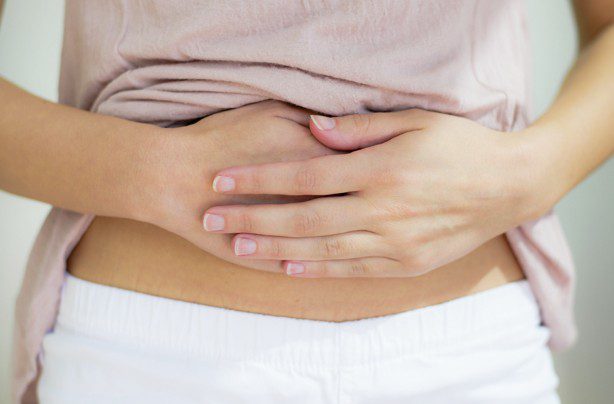Everyone experiences bloating at some point. Whether it is due to an indulgent meal or swallowing excessive air, this swollen belly, often dubbed “food baby”, can become uncomfortable and painful, while in extreme cases, ultimately distressing particularly when someone points out that you’ve put on weight or asks if you’re expecting.
How does it happen? Bloating is often times caused by excess gas production and agitation in the movement of the muscles of the digestive system. It could also be due to serious medical conditions, but in most cases, it is your diet and intolerances to certain foods that is the root of the problem.
Here are 7 ways you can avoid bloating once and for all:

1. Practice intermittent fasting – How intermittent fasting works is that it shortens your eating window within 24 hours of a day to lower blood sugar levels in order to prevent overeating and binge-eating, aside from helping you lose weight. Over time, your body will require less food to be full, and the digestive system will be trained to function normally. You can find out more about intermittent fasting here.
2. Find your triggers – Everyone’s body is different and may be allergic or intolerant to various things. Yes, it may take a while for you to pinpoint the foods that cause you to bloat, but it will be rewarding once that happens. Some ingredients and common foods many people are intolerant to include lactose, fructose, eggs, as well as wheat and gluten. Find alternatives that wouldn’t cause a reaction in your digestive system.
3. Load up on fibre – Constipation is one of the most common digestive problems out there and can be the reason why you bloat. In light of that, consume more soluble fibre to ease your way to go number two daily. With that said, too much may just make things worse, so find the fibre sources that do not irritate your digestive system. In tandem, try taking magnesium supplements or increase physical activity.
4. Take probiotics – Probiotics are made of live bacteria and yeast that are wonderful for gut health, and it helps to regulate bowel movements by balancing out the bad bacteria that produces gas. Popping one probiotic pill everyday not only helps prevent bloating, but also helps the gut system ingest foods more efficiently so as to increase the body’s immunity against things like diarrhoea and food poisoning.
5. Drink loads of water – We all have cheat days once in a while and eat whatever the hell our heart desires. When this happens, drink as much water as possible to help lessen the bloating effects from eating too much sugar or processed carbs. It helps two ways – It reduces water retention, and also prevents constipation. On top of drinking water, include foods with high water content like watermelon and cucumber.
6. Be wary of sugar alcohols – What exactly are sugar alcohols? It is a sweetener that is most commonly found in sugar-free foods and chewing gum. While it is deemed as a safe alternative to sugar, it can cause digestive issues and produce gas. To spot them, look out for ingredients such as xylitol, mannitol, sorbitol and erythritol. They may seem harmless, but can prove to be lethal for the stomach.
7. Avoid these foods – Certain foods are known to produce excessive gas. This list includes beans, onions, broccoli, cabbage, sprouts and cauliflower. Should you be vegan and dependent on these ingredients in your diet, be wary of the amounts you consume or substitute them for other alternatives that extend a similar profile of nutrients your body may be in need of.




